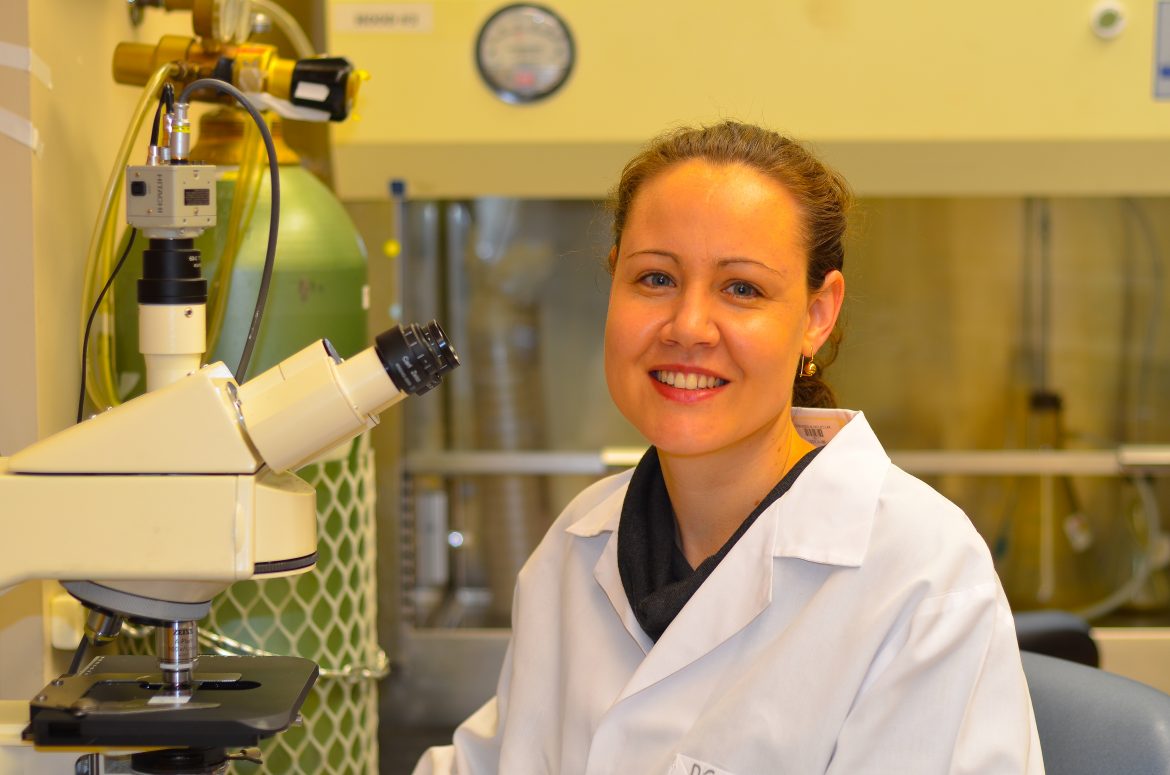Dr Natalie Spillman attended the National Youth Science Forum (NYSF) in 2003, and after school finished, went on to study for a Bachelor of Philosophy (PhB) at the Australian National University (ANU).
“When I started my degree at the ANU, I was really keen to study physics, so I studied mathematics, physics, chemistry and biochemistry in first year. Then I discovered how much I was interested in how cells work, so I swapped my major focus to biochemistry and that’s what I’ve been interested in ever since.”
Natalie grew up in Mackay, Queensland and knew she did not want to study at a regional university. Coming to Canberra, she says, “… was always going to be a big move for me and it was a good compromise between Mackay, a smaller town, rather than moving to a larger city such as Brisbane, Sydney or Melbourne - which seemed a scary prospect at the time.”
The ANU’s PhB, is a research-focused degree that allows undergraduate students to study with leading researchers, starting in the first year of study. “It was great to get so much exposure to lab work so early, and it really confirmed for me that research was what I wanted to keep doing.”
Her projects were wide ranging, “…from cytokinin regulation in Arabidopsis, to the clustering of GABA receptors in mouse neurons. During my summer breaks I undertook an ANU College of Science Summer Research Scholarship on membrane transport in the malaria parasite, and a CSIRO Plant Industry Summer Student Program scholarship investigating the role of polycomb proteins in Arabidopsis vernalisation response. These lab experiences confirmed my passion for research, and allowed me to gain a comprehensive and far-reaching lab skill set.”
This passion for research fuelled Natalie to undertake a PhD in Biomedical Science and Biochemistry at the ANU. “In my PhD I studied how the malaria parasite maintains a ‘low-salt’ environment. Cells have to regulate how many sodium ions (Na+) they have. If the sodium levels get too high, other enzymes in the cells can’t work as efficiently and the cells can die. Too much salt is generally bad. High salt is bad for plants (saline soil), and high salt diets are generally bad for our health (hypertension and cardiovascular disease)."

Natalie Spillman
Natalie is fascinated by the malaria parasite. “In particular, I am interested in how it lives inside a red blood cell. There are so many strange and amazing aspects of its biology that we need to continue to study to develop new drugs against this parasite. They are resistant or developing resistance to all of our current anti-malarials. So I definitely wanted to keep studying malaria during my postdoctoral research.”
In 2013 Natalie received a National Health and Medical Research Council (NHMRC) CJ Martin Overseas Biomedical Fellowship, administered by ANU, to research at Washington University School of Medicine (WUSM) in Saint Louis, USA. Now conducting post-doctoral research, Natalie’s current research is sponsored by an Amgen American-Australian Association Fellowship also at WUSM.
“I am now studying how the parasite can communicate and change the red blood cell. The parasite exports hundreds of proteins out into the red blood cell. But we don’t know how these protein effectors can alter red blood cell biology."
The Centre for Disease Control estimates that, “3.2 billion people (half of the world’s population) live in areas at risk of malaria transmission in 106 countries and territories”, so the need for malaria treatments is significant. Natalie’s work and contribution can only be of benefit to us all.
By Julie Maynard